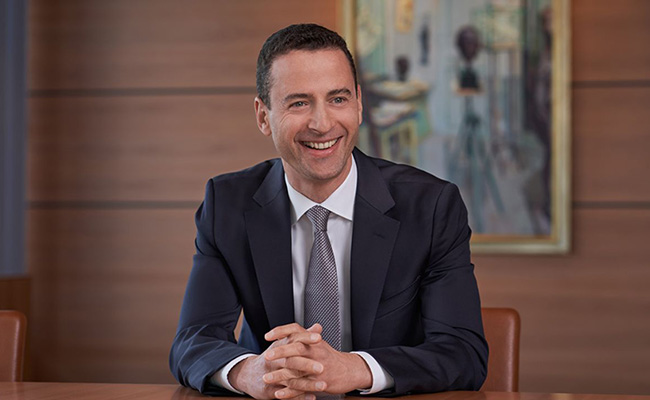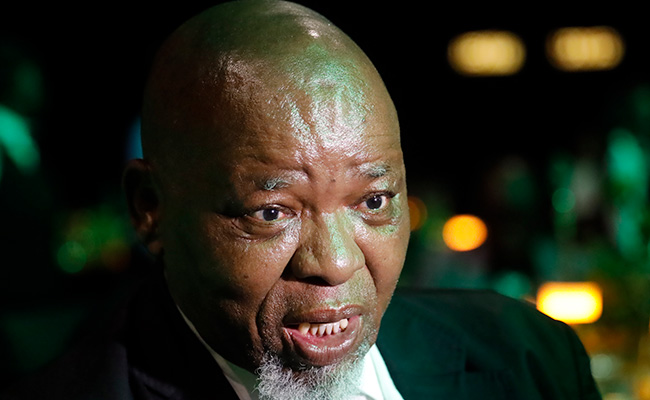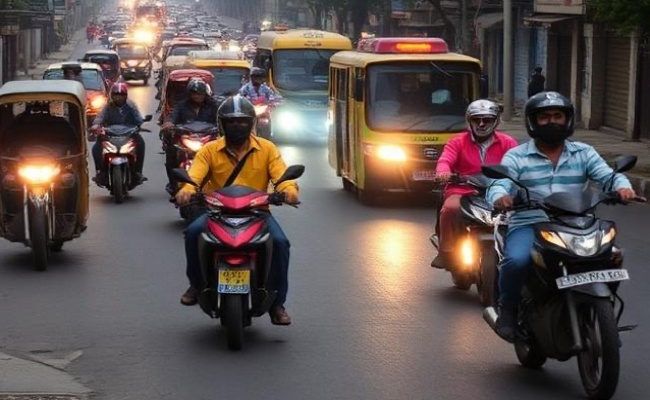When Ismail Momoniat reflects on South Africa’s ordeal of being greylisted by the global money-laundering watchdog – and now, mercifully being removed from it – there’s a sense of relief, as well as unfinished business.
As a senior National Treasury official during Jacob Zuma’s presidency, Momoniat spent years trying – and often failing – to push through stricter anti-money-laundering laws.
“We had a tremendous battle with the former president just to do the amendments to the Financial Intelligence Centre Act between 2014 and 2017,” he says in an interview with Currency. “Even when the bill was in parliament, he objected to it – after cabinet had approved it.”
Those delays weakened South Africa’s defences against illicit finance and corruption.
In February 2023, the country was greylisted by the Financial Action Task Force (FATF), the Paris-based money-laundering watchdog, effectively branding it as a jurisdiction that couldn’t be trusted to police dirty money. The stigma increased the cost of cross-border deals, slowed capital inflows and made life harder for South African firms abroad.
After 33 months under scrutiny, South Africa was finally removed from the list on Friday, a symbolic clean break from a decade of institutional decay.
For Momoniat, who led the National Treasury’s inter-departmental clean-up, the benefits are immediate: smoother payments, lower compliance costs and a reputational lift that could help trim government borrowing costs.
“Leaving the list makes doing business in South Africa easier,” says Bastian Teichgreeber, chief investment officer at Prescient. “There’s less uncertainty, less red tape. That boosts confidence, attracts more money and lowers yields.”
This bodes well for South Africa’s efforts to lobby for a credit rating upgrade – a vital step towards regaining the country’s investment grade rating, which was lost during the final years of Zuma’s ruinous tenure.
“It’s a virtuous cycle – not an overnight upgrade, but a small piece of a much bigger puzzle,” says Teichgreeber.
Kevin Lings, Stanlib’s chief economist, says the delisting should lift sentiment. Lings said on a podcast that being grey-listed “added cost and delay to offshore transactions”, while South Africa’s removal “reduces friction and provides a welcome psychological lift at a time when confidence is fairly low by historical standards”.
So, as much as this removal from the greylist warrants a victory lap, analysts say the war is far from won.
Momoniat warns that the hard part starts now: turning compliance into credibility – and credibility into lasting integrity. “We’re just at the start,” he says. “We face a mutual evaluation late next year, so we have to continue to demonstrate improvements.”
That process, which will run through to the FATF’s next report in October 2027, will test whether the reforms that got South Africa off the list have taken root. “The momentum is there,” he says. “The issue now is to maintain that momentum – that’s the challenge.”
The clean-up that delivered the delisting was sweeping: new laws, tighter supervision, better data and closer coordination between regulators, law-enforcement agencies and the private sector.
One of the reforms that had to happen was that South Africa had to demonstrate it could identify the real beneficial owners behind companies and murky trusts.
Compliance has reached about 70%, up from less than 50% in July. “We’ve got to get those numbers closer to full coverage by the time of the next evaluation,” says Momoniat. “The worst thing would be to relax now.”
The policing albatross
Enforcement remains the weak link. The National Prosecuting Authority (NPA) and the Hawks are feeble, shorn of the skills needed to jail white collar criminals.
“We’re in a better place than we were a year or two ago,” says Kuben Naidoo, an executive at Investec and former South African Reserve Bank deputy governor.
“But if we don’t keep improving our ability to fight financial crime, we could be back on the grey list in a year or two. The key is deterrence. Without visible prosecutions, we backslide. It’s like fighting corruption – you can do everything right, but if there aren’t enough people in orange overalls, the deterrent isn’t there.”
The NPA’s annual report shows progress: the value of criminal asset confiscations in the money-laundering and complex-tax cluster surged to R3.08bn in 2023/24, up sharply from R495m the previous year. Over the past five years, the NPA has recovered more than R5bn through its Asset Forfeiture Unit.
Yet the number of money-laundering prosecutions remains too slow.
“We need to get those people prosecuted and in jail as soon as possible,” says Momoniat. “The system is beginning to move, but far too slowly. We need to speed up and show that there are real consequences for those who steal.”
That means every link in the justice chain must work – from investigators to prosecutors and regulators. “If they don’t work together, cases don’t get investigated properly, they don’t reach court,” he says.
Much of the missing capacity can come from the private sector: forensic accountants, digital-evidence specialists and analysts who can follow money through data trails.
“Getting that type of expertise into the system, and for it to become routine, is what is required,” says Momoniat, pointing to public-private partnerships that embed private-sector specialists inside investigative teams.
Continuity, of course, is crucial. The good news is that Momoniat, as an expert in this topic, has been asked to stay on by Treasury to deal with the FATF process.
Credibility deferred
Business groups have lauded the greylist exit as vital for restoring confidence.
Operation Phumelela, the financial-sector taskforce chaired by JSE CEO Leila Fourie, called the decision “a watershed moment” that strengthens South Africa’s position as a regional financial hub.
Business for South Africa (B4SA) described it as proof that “public-private collaboration can unlock results in the national interest”.
While this decision was expected to be good for bank shares, and the wider JSE, markets appear to have already priced in this exit.
Prescient’s Teichgreeber says the recent rally in South African bonds shows it had been clear for some time that South Africa would leave the greylist.
“We started the year with very high real yields, but much of that value has been priced out,” he says. “Inflation is still sticky and the Reserve Bank has not cut [rates] yet. The greylist exit helps – but it’s not a reason to chase yield at any price.”
Prescient now favours the mid- to front-end of the bond curve – roughly five- to ten-year maturities – where it still sees value. And this greylisting exit probably won’t lead to a new surge in the JSE, which has already risen sharply this year.
“Our stock market is driven by global factors – resource prices, US rates, inflation expectations. Delisting is positive for long-term confidence, but it won’t trigger fireworks.”
Still, Lings says the symbolism matters.
“For a G20 country hosting the G20 summit next month, being on the grey list was less than ideal,” he says. “I’m hoping that, together with private-public partnerships, we can go into 2026 on a firmer footing and start to see some uplift in South Africa’s growth that takes us beyond the 1%.”
At this point, Lings says South Africa isn’t doing enough to achieve GDP growth of 2% or 3%, but says “there are positive developments” happening in the background.
But the last thing South Africans need is further complacency.
Momoniat says South Africa has “that disease” of waiting until the absolute last minute before doing what should have been done months earlier.
“We act when the gun has been pointed at us. We don’t act soon enough. The challenge is to learn the lesson and keep going,” he says.
That means embedding reform, not simply putting band-aids on a wound.
“The improvements we’ve made have to become permanent fixtures of our financial architecture,” says Momoniat. “It’s not really to satisfy FATF; it is for the interests of the country: financial crimes undermine our democracy.”
The last thing anyone wants, for sentiment and credibility, would be for South Africa to be greylisted again at the 2027 meeting of the money-laundering watchdog.
Top image: Rawpixel/Currency collage
Sign up to Currency’s weekly newsletters to receive your own bulletin of weekday news and weekend treats. Register here.














